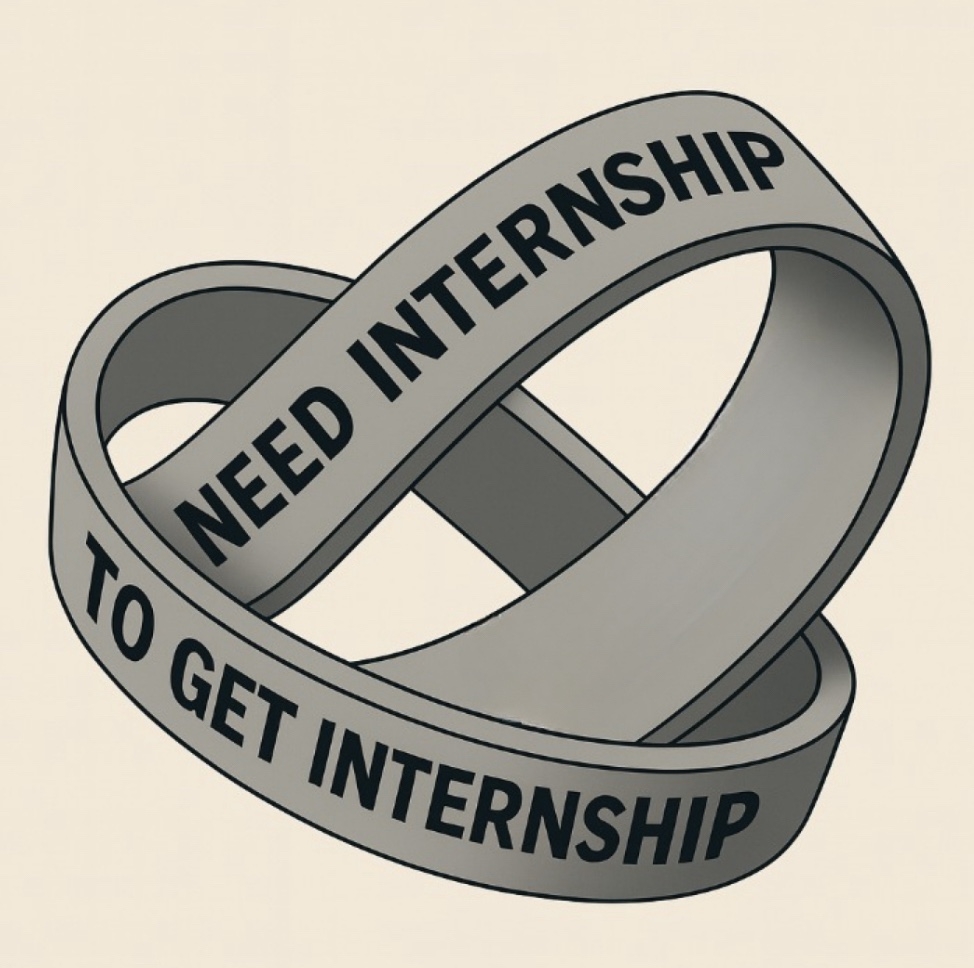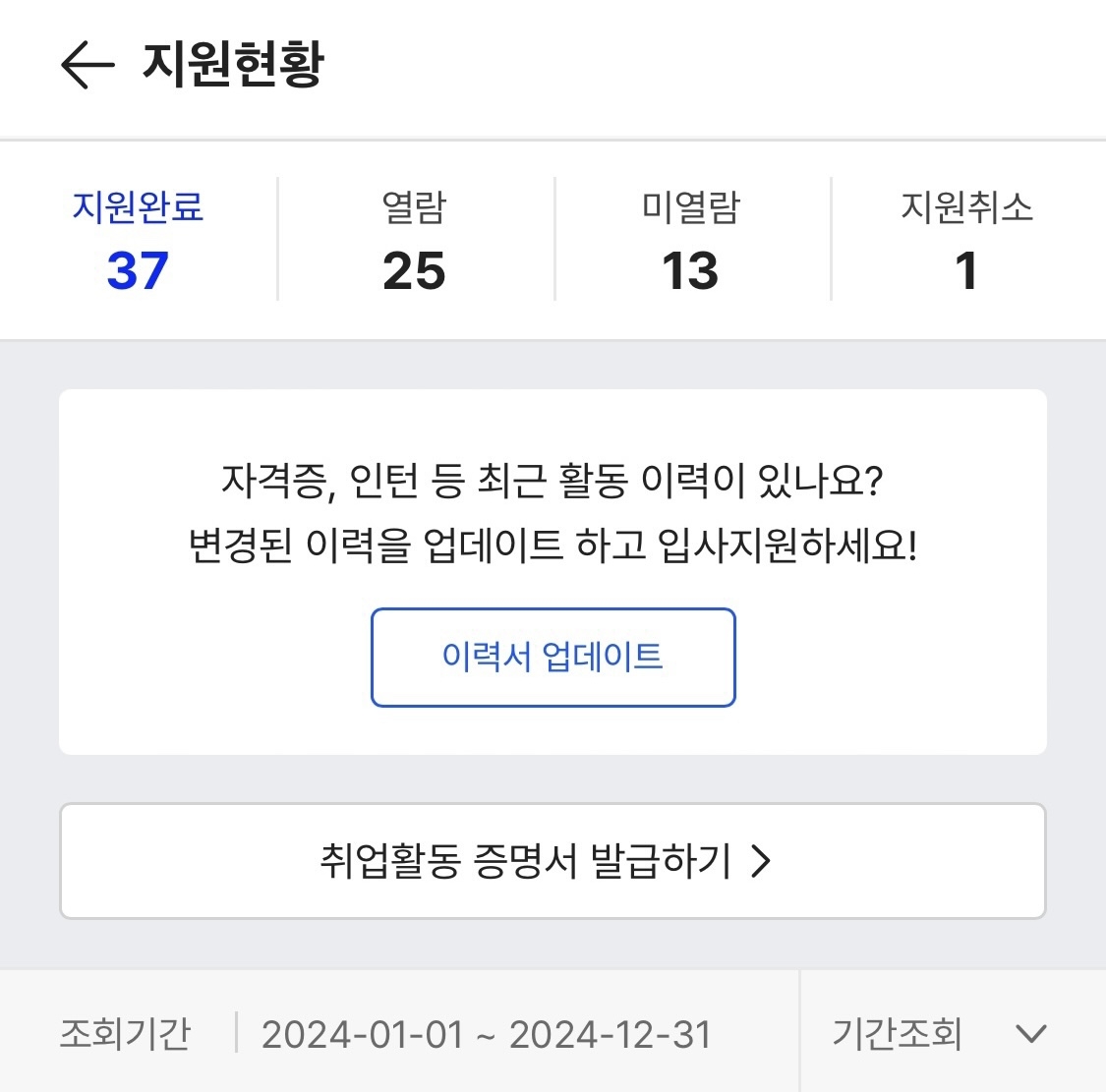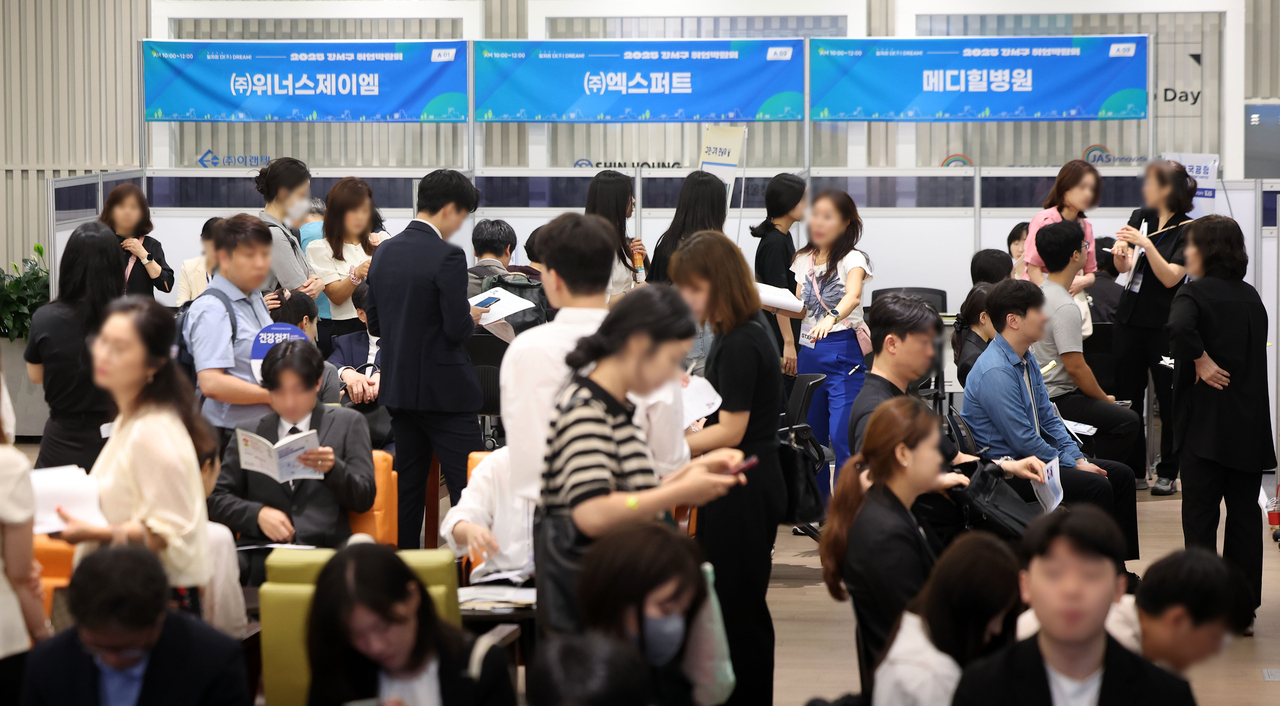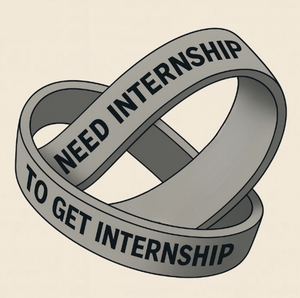 To land an internship in Korea, you may already need to have had one. (Image generated using ChatGPT)
To land an internship in Korea, you may already need to have had one. (Image generated using ChatGPT)
To land an internship in Korea, you may already need to have had one.
“That’s the paradox frustrating many young job seekers today,” said Lee Hee-soo, 26, who learned this the hard way.
A graduate of Chung-Ang University, with a solid GPA of 4.41 out of 4.5 and a resume filled with a variety of extracurricular activities, Lee, who asked to be identified by a pseudonym, she thought she was well prepared to take her first step after college.
Yet after submitting over 30 applications across multiple job platforms ㅡ and receiving mostly silence or rejections ㅡ one conclusion became hard to ignore: Internships, once seen as optional stepping stones, now feel like non-negotiable prerequisites for even entry-level jobs.
“One of my friends jumped straight into internships in her sophomore year, and she ended up getting more opportunities despite having a low GPA,” Lee said.
“I wish I had realized how competitive the job market was from the start. In that sense, I feel like I’m a bit late,” she said bitterly.
 A screenshot of Lee Hee-soo’s phone showing 37 internship applications submitted last year — 25 viewed by employers and 13 left unread (Photo provided by Lee)
A screenshot of Lee Hee-soo’s phone showing 37 internship applications submitted last year — 25 viewed by employers and 13 left unread (Photo provided by Lee)
Originally intended to help students explore different career paths and serve as a bridge between academia and industry, internships were once viewed as learning opportunities — not selective pipelines. But as companies raise the bar for even short-term positions, intern positions have become increasingly difficult to secure.
For many students, what should be a space for discovery now feels like a make-or-break stepping stone in an already unforgiving job market.
 Job seekers receive employment consultations at the 2025 Gangseo-gu Job Fair, held at Seoul Startup Hub M+ in Magok, Gangseo District, Seoul, on June 26. (Newsis)
Job seekers receive employment consultations at the 2025 Gangseo-gu Job Fair, held at Seoul Startup Hub M+ in Magok, Gangseo District, Seoul, on June 26. (Newsis)
The Korea Herald surveyed a total of 60 college students, recent graduates and early-career workers and 75 percent said that internships were essential to landing a full-time position, and just as many said that they think securing an internship itself now requires prior working experience.
The survey also found that students prioritize a company’s name recognition, relevance to their major, and the potential for gaining work experience when applying for internships. Seventy percent said they wouldn’t apply unless the company is considered “good,” typically referring to large firms with strong brand value.
A look at internship postings on LINKareer, an online platform for job and extracurricular opportunities for college students and graduates, reveals an unmistakable preference for prior experience regardless company size or industry. Prada, a global luxury brand, is seeking logistics interns for a six-month contract, with relevant work backgrounds. KakaoBank, a local fintech firm, is looking for internship participants with prior UX research experience. Even startups like Classum and The Founders say on the listings that they favor applicants with prior experience in the roles they are looking to fill, or in similar positions.
Although these are listed as “preferred,” not “required,” the reality is often that when only one or two interns are hired, those preferences often become de facto requirements — creating a paradox where experience is needed to gain experience.
Interns share their stories
Park Gyu-ri, 24, who recently finished interning at the Korean trade promotion agency KOTRA’s office in Ho Chi Minh, secured the position only on her second try — the key difference being that she had gained prior internship experience before her second interview.
“It felt paradoxical that I needed internship experience just to get one,” she said.
Park E-won, 22, an Ewha University student interning at a company in the education sector, pointed out the irony embedded in the process.
“Many application forms even include separate sections for prior working experience,” she said.
She faced two prior interview rejections — one, she believes, for not effectively communicating her strengths, and the other for lacking hands-on experience due to her theory-heavy background.
Kim Jin-uk, 26, who now works at a major IT subsidiary, believed his prior internships at Coupang and McDonald’s were invaluable during his job interviews.
“Many employers now prefer candidates with hands-on experience,” he said.
Park Gyu-ri, the KOTRA intern, felt that internships in general are increasingly being used by compaines as substitutes for full-time positions, often without providing the same protections or compensation.
She added that, unlike in the past when newcomers were given the opportunity to grow gradually through training and mentorship, “many Korean firms now seem to just want you to hit the ground running.”
Lee Joo-won, studying at Hankuk University of Foreign Studies, Graduate School of International and Area Studies, stressed that a deeper issue lies in structural imbalance.
“This system creates unequal starting lines ㅡ those with better networks or resources seem to gain easier access to experience, while others struggle to get in at all,” she said.
The experiences shared by young job seekers highlight a broader shift in South Korea’s hiring practices, according to Kim Yang-soo, adjunct professor at the Career Development Office of Kyung Hee University.
As more companies move away from annual mass recruitment of fresh graduates toward rolling hiring and companies increasingly value adaptability and real-time problem-solving over academic credentials, internships now function less as bridges and more as tests — filtering out those who are merely colleged educated from those who are truly work-ready, he explained.
“Internships are no longer just a starting point,” professor Kim said. “They’re more like checkpoints to see how well you handle pressure and real work.”
Beyond resume: Define your own readiness
For those without prior experience, securing a coveted internship at a sought-after company can now feel out of reach. But career mentors say applicants shouldn’t be discouraged, urging them to look beyond resume lines and focus on how they define and demonstrate their readiness.
Whether through formal roles or personal projects, what increasingly matters is not just where you worked, but how you worked ㅡ and who recognizes it.
Brandon Yoon, executive leadership coach at Inspire Coaching & Consulting and an advisory council member of the Harvard Business Review, believes the key lies in how early careers are framed.
“Internships help, but they’re not everything,” he said. “What matters more is showing you’ve applied relevant skills. Leadership in group projects or clubs can also signal workplace readiness.”
He adds that students often wait too long to start career planning.
“Many universities don’t have enough personalized resources. So students need to be proactive. Job-skill programs are available, don’t wait for perfection, just begin,” he said.
Choi Young-bin, an ESG-focused startup founder, emphasized LinkedIn as a place to turn one’s various experiences, with or without corporate internships, as a visible portfolio. “It’s not just another resume line. If you organize and share your work properly, it shows people exactly what roles suit you.”
Brasley Byun, 26, now a sales and marketing associate for Zeiss Vision, built his career through LinkedIn, not job boards. With over 15,000 followers, he used the platform to discover informal opportunities and connect with recruiters directly.
“Jobs are so limited these days, so rejection should be the default,” Byun said. “Try lowering your expectations and keep trying until you find your fit.”
He added that at SAP, where he previously worked, HR teams would frequently post early talent content directly on LinkedIn — often before official postings were made elsewhere.
Park Li-na, 27, broke into a competitive media internship without prior experience or a standout GPA.
“No one was opening doors for me, so I had to knock on each one myself,” she said. Instead of chasing traditional credentials, she doubled down on what she knew best — the instincts and digital fluency of her generation.
“I used the MZ sensibility as my weapon,” she said, which she said led her to secure a role at a US-based media company in Korea.
Kim Hyo-geon, 26, a full-time employee at a public institution in Korea who began his first internship during his freshman winter break, conveyed a similar context, saying, “While prior internships can help, he emphasized that genuine effort, reflection, and basic workplace skills ㅡ like communication, documentation and organizational awareness ㅡ matter more.”
